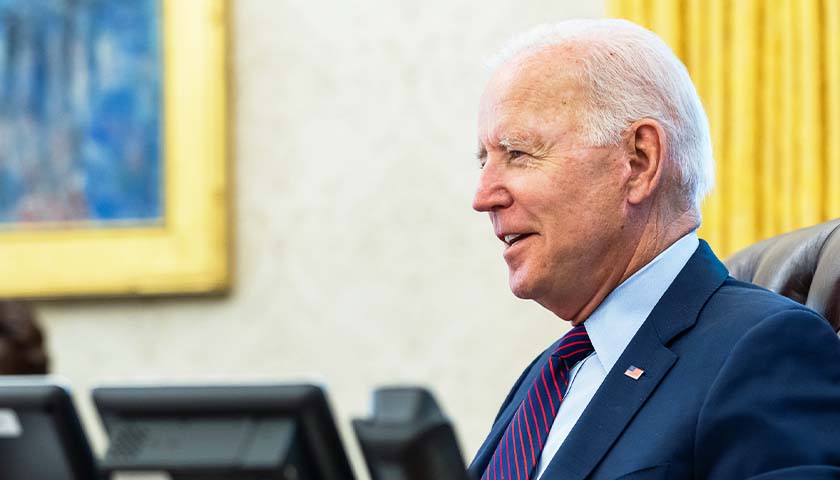by D. G. Hart
President Biden’s Summit for Democracy hasn’t yet provoked the sort of debate about Biden’s relationship to his church that abortion has. But questions about the president’s adherence to church teaching may be as applicable to democracy as it is to a woman’s right to choose since, in both cases, Roman Catholicism has much to say. In the case of democracy, Americans used to view Rome, a hierarchical church that had a long history of cooperation with emperors and monarchs, as an arch opponent of the nation’s democratic politics. Until the 1960s, the perception may have been accurate, but today it is a relic of an earlier era in church history.
One question that emerged after the Summit for Democracy is whether Biden’s faith might explain the presence of nations who seem to lean more authoritarian than democratic. As the story in the New York Times put it, “It was no surprise that China and Russia were not included, but the administration was second-guessed for its decision to invite other countries with checkered human rights records, like the Philippines and Nigeria, while excluding NATO allies Turkey and Hungary, both led by rulers with authoritarian streaks.”
Those decisions have prompted critics to wonder how committed the Biden administration is to democratic norms. Princeton University’s Jan-Werner Müller, for instance, praises democracy for assuring “citizens of equal political status.” Authoritarian societies like China “might deliver prosperity, but no sense of … ‘social stability.'” People under such governments cannot enjoy their freedoms because “the powerful might suddenly turn against them.” For that reason, Müller asserts that Indian Prime Minister Narendra Modi and President Jair Bolsonaro of Brazil “should above all be criticized for inciting hatred against parts of their own populations.” “Short of declaring dictatorship,” she adds, “one can hardly get more undemocratic.”
Yasmeen Serhan makes a similar point at The Atlantic. “More than a quarter of the countries on the summit’s roster were deemed only ‘partly free’ in the democracy watchdog Freedom House’s latest ‘Freedom in the World’ report,” she writes. “Three invitees (Angola, the Democratic Republic of Congo, and Iraq) are not considered free at all.”
Neither Müller nor Serhan brings up Mr. Biden’s faith, a likely and welcome sign that anti-Catholicism of the kind that hounded John F. Kennedy — the first Roman Catholic president — has diminished significantly. Sixty years ago, Kennedy needed to reassure Americans that he believed in an America “where the separation of church and state is absolute — where no Catholic prelate would tell the President (should he be Catholic) how to act, and no Protestant minister would tell his parishioners for whom to vote.”
Such faith in democratic norms ran against a history in which Rome had often opposed liberal democracy. As Michael Sean Winters recently observed, throughout much of the modern era “Catholics were not exactly the strongest advocates of democracy! The 19th century witnessed an almost relentless attack on democratic values by papal teaching.”
It wasn’t until the Second Vatican Council (1962-1965) that the church’s hierarchy embraced liberal political ideals explicitly. In its pastoral constitution on the church in the modern world, Gaudium et Spes, Rome affirmed democratic procedures. In a related Declaration on Religious Liberty, “Dignitatis Humanae,” the bishops sided with freedom of conscience for observers of all faiths.
Biden’s own bishops, the USCCB, have also been outspoken in their praise for democracy and freedom (though critics argue the American hierarchy leans more Republican than Democrat). Since 2012, the bishops have sponsored a Fortnight for Freedom, two weeks running up to Independence Day, in which church members are reminded of the importance of religious liberty. That reminder often involves complaints about federal policies that make no provision for religious exemptions in health care policy or marriage law, for instance.
President Biden may run up against the church hierarchy on abortion, but on democracy, he has the church’s full support. As Winters observes, “It is funny in a sad sort of way, that whenever anyone talks about Biden’s politics being influenced by his Catholicism, whether they seek to praise or to criticize, no one ever mentions the church’s teaching on democracy and civic participation.”
The problem could be that Biden’s faith, like that of many public figures, is more ornamental than, in the words of H. L. Mencken, “deep down diving.” But if he wanted to prove his Roman Catholic bona fides as reporters presented it soon after his inauguration, supporting democracy and civil liberties with the help of the Vatican and his own bishops could be a win-win. If Biden’s invitees to the Summit for Democracy included authoritarian governments, the reason was not the president’s deference to church hierarchy. In fact, his faith is a ready aid in promoting democracy both in the United States and around the world.
– – –
D. G. Hart is a contributor to RealClearReligion. He teaches history at Hillsdale College and is the author of “American Catholic: The Politics of Faith During the Cold War” (Cornell, 2020).





